Rahaf Mohammed al-Qunun was just 18 when she captured the world’s attention.
It was January 2019 and the Saudi teenager had been on holiday with her family in Kuwait when she slipped away, intent on flying to Australia and claiming asylum.
However, at Bangkok airport she was detained by officials. Fast running out of options, she picked up her phone and started tweeting.
“I’m the girl who ran away to Thailand. I’m now in real danger because the Saudi embassy is trying to force me to return,” she posted in Arabic.
“I’m afraid. My family will kill me.”
Within hours, the hashtag #SaveRahaf was trending, and by the end of the day her Twitter following had jumped from 24 followers to 27,000. Her face was beamed around the world; her story covered by television networks and newspapers, who framed her plight as the ultimate escape from Saudi Arabia’s repressive regime.
Happily for Mohammed (she dropped her family name of al-Qunun), Canada soon offered her asylum. Now she has written a book Rebel, which explains why she was so desperate to escape, and what it was like growing up as a woman in Saudi Arabia.
Here is an edited extract of her story:
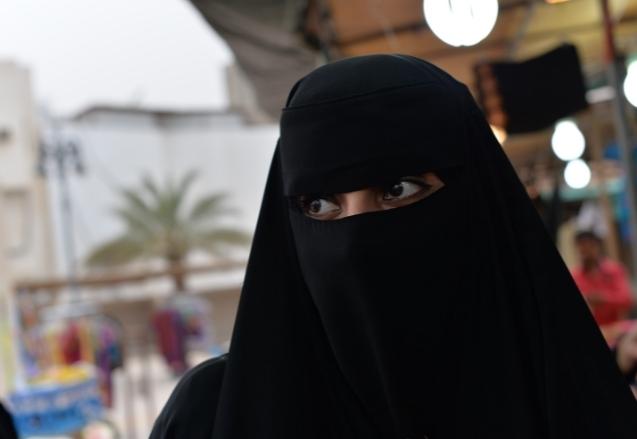

When I was seven, I asked my mother why I couldn’t play outside. I asked her why older girls and women wore hijabs. But she would only say, “If you’re a girl, you behave like a girl. Good girls learn to take care of a house for a husband; they wear hijabs to show that they are good. They don’t do what boys do.”
They sure didn’t. The boys wore jeans and T-shirts; girls like me wore a jalabiya, which is a long, shapeless dress that covers your whole body.
My family are Sunni Muslims from the al-Shammari tribe that used to rule the Ha’il region until the Saud tribe took over. Ha’il is the most conservative part of Saudi Arabia.
My family are part of the elite: we lived in Salah al-Din in a nine-bedroom house with two kitchens, ten bathrooms, six sitting rooms. We had a cook, a driver and a housekeeper and there were six family cars. My father was the governor of al-Sulaimi, a city 177km away.
I’m the fifth child of seven. My older brothers were my self-appointed guardians; they controlled me, checked my every move. By the time I was nine, I was told not to open my legs ever and to always sit up straight with my legs crossed.
As a girl you cannot sit outside, ever. You can’t open the window, even in your own bedroom. The curtains must be drawn. If there’s a knock at the door, you cannot answer; you can’t say, “Who is there?” No one should hear a girl’s voice.
I was told you can never walk in public, and if you must work, you can only become a teacher in an all-girls school.
I was told you can never walk in public, and if you must work, you can only become a teacher in an all-girls school.
Like me, my female friends and cousins were all controlled by their brothers.
My brother Majed was the toughest; he had very strong opinions about girls – their appearance and behaviour usually enraged him. My brothers would try to scare me into conforming by saying the mutaween would come and get me.
I had heard plenty about these religious police: they were the vice-and-virtue squad that went around enforcing the religious rules, such as women covering themselves and men and women staying apart. They claim they do this to protect public morality, and say they have the right to intervene when a Muslim is acting incorrectly. The phrase they use – which I heard a lot when I was growing up – is “enjoining good and forbidding wrong”. I always wondered how it was good to hit a girl who was laughing out loud and wrong for a girl to ride a bike.
Aged 10 I had my own phone, but as much as the phone belonged to me, it was my brothers who decided if I could use it, who I would call, how long I would talk. They would go through my phone to see if I had called anyone without their permission.
One day my mother struck a match and held the flame very near to my body. She said, “Your body will get burnt in life and even in the afterlife if you soil your honour or your family’s honour.”
I didn’t know what she meant, but I was terrified by this unknown menace called honour.
She forced me to look downward and said, “This is how you should look – with your eyes cast down at the ground if a man passes by you in public places.”
One day, when I was almost 12 years old, Majed said, “From now on you won’t leave the house without a niqab to cover your face.”
He spat out that command as though he were a royal prince. I no sooner slipped the niqab over my head than I felt like I no longer existed. We walked in the busy street and I felt that I was invisible; I could see everybody but no one could see me. It felt hot, claustrophobic. I was breathing against a piece of cloth that had started to get damp, making me feel like I was breathing stale air. I wondered if I would suffocate. My sister Lamia leant in close to me and said, “Don’t be afraid; you’ll get used to it.”
There was a lot I was having trouble “getting used to”. I learnt early to keep a secret – to lie if I must – to avoid punishment, even death.
Honour – having it, keeping it, protecting it or losing it – was the backstory of every part of our lives. I knew my family would kill to protect their honour, to eliminate shame. And that burden was carried by girls and women exclusively.
I remember once when the conversation turned to the demands women were starting to make about driving, my mother said, “Any woman who wants to drive a car is a whore.”
My mother said, “Any woman who wants to drive a car is a whore.”
As a teenager I started to rebel. I was never allowed to go out with my friends, but it was permissible to go to my relatives’ houses as long as I took my little brother and sister, Fahad and Joud, with me. That’s how I got myself to the souk, without my parents knowing. One afternoon we ran into the religious police, who called us dirty girls because we were outside without a male guardian. The men in the souk harassed us, grabbing us from behind, pulling my niqab and hijab off my face and head.
Women try to seek justice by exposing men who harass them on Twitter – posting a tag that translates as #exposetheharasser – but invariably there’s an onslaught of replies that accuse the woman of causing the behaviour: “It’s because you were by yourself,” or, “If you were at your home, that wouldn’t happen to you.”
Usually in the souk I wasn’t supposed to talk to the seller; if I had a question, I had to whisper it in my brother’s ear and he then asked the seller on my behalf. I wasn’t allowed to give the money by hand to the seller or take the bag with whatever I had purchased from him. At a medical appointment, when the doctor would ask me questions, my father or my brother would answer and explain to him what I was feeling.
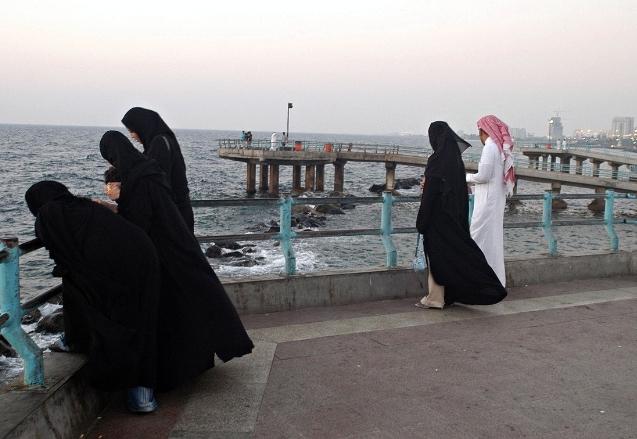

The hitting and violence in my life were not unique. Every girl I knew endured similar discipline. But in secret, I was experimenting with relationships, with girls as well as boys. I knew I was walking an extremely dangerous line. If anyone found out, death would be my fate.
If the family are forgiving and decide she needs punishment rather than death, they send her to one of the prisons called Dar al-Reaya, the worst places on earth.
Sometimes called “care homes”, the Dar al-Reaya house girls and young women between the ages of seven and 30 for crimes such as disobedience – defying the dress code, an unacceptable sexual orientation, or refusing to marry the man of the family’s choice.
Everybody knows about these prisons for girls, but hardly anyone talks about them. They’re a dumping ground for families who claim their daughters have brought them shame. Most of the girls in these places are actually victims of rape and abuse by male guardians in the family, or they are activists who are demanding change.
Everybody knows about these prisons for girls, but hardly anyone talks about them.
There was a lot of talk when I was in high school about reform; the country certainly had a long way to go. Even though girls were permitted to attend school and university (unlike some of our mothers and grandmothers), we still had guardians – a father, husband, brother or son who controlled our every move.
The kingdom claims to be easing restrictions on women: forced marriage became illegal in 2005; a woman joined the ranks of government ministers in 2009; Saudi women were allowed to compete in the Olympic Games as of 2012; and we gained the right to vote in 2015.
I started spending a lot of time in my room alone, like any other teenager searching for answers, going deeper into social media on my phone, meeting new people online. There was lots of talk on internet sites about drinking, doing drugs, having sex. The girls online were wearing sexy clothes, short skirts, see-through blouses. I could hardly believe what I was seeing. It shocked me, but it answered some of my questions.
I was apparently not the only one hiding her sexual practices. I started to wonder how many Saudis were like the ones I saw online, and did they prefer to hide their behaviour or did they hide their behaviour only because of the rules we lived with? All of it made me think again about the delicate net of deception that weaves its way through our society, and that most people likely do whatever they want as long as they can keep it a secret.
My friends and I talked openly about prohibited subjects. We were surprisingly frank with each other about getting rid of the veil, attending parties, having sex. The difference between them and me was they stuck to the customs and religion despite their cravings, but I went after what I wanted. My dream was to live in a country far from the Middle East that believed in gender equality and human rights. But I couldn’t even convince my family to let me go to high school in another city in Saudi Arabia.
I’ll never forget stumbling upon an extraordinary underground network of Saudi women runaways. It was bedtime. I was surfing around various internet sites and found the Twitter account of a woman who lived in Canada. I texted her and asked her how she’d managed to get to Canada. I trusted her enough to admit that I wanted to run away. She gave me the secret code to access a site that helped girls escape and told me to create a code name for myself. I was hooked.
I couldn’t even convince my family to let me go to high school in another city in Saudi Arabia.
This was a network of young women – a private chat room – who were like-minded in their views about the status of women and girls in places like Saudi Arabia. There were subgroups, some of them with men as well as women who were also interested in living in a foreign country. Even though our identities were hidden, they very quickly became a family to me.
They had tips about how to get a travel permit without asking your guardian, who would never approve of such a thing.
These women knew how to get themselves off Absher – the app that allows guardians to control the movements of the women in their lives – and get a travel permit secretly. It was a tricky procedure, and dangerous too, because the government would hunt down any Saudi national who tried to flee the country.
There was a lot to learn: how to book an airline ticket online and apply for a visa; how much money to save and how to stash it away in a secret bank account. There was a lot to deal with for a girl like me, who’s been driven to school all her life, who’s not only been supervised while shopping but hasn’t even been allowed to hand money to the shopkeeper.
I discovered how some Saudi women subvert the stifling rules so they can survive and stay sane. Plenty have secret apartments they rent from agencies that waive the guardian rule, a place to go to feel free. Some girls take driving lessons from clandestine sources while waiting for the ban against women driving to be lifted. There are even secret soccer leagues for girls.
I begged my parents to allow me to go to university in another city, hopefully Riyadh or Jeddah where the rules were less conservative, but they refused. So I registered at the University of Ha’il in the autumn of 2018. I was allowed to leave the campus as long as I showed my schedule at the gate to prove that I was not skipping a class. But it was easy to falsify a schedule. I’d doff my niqab and do normal things like sit in a park, eat ice cream, walk down the street exploring the shops.
I’d doff my niqab and do normal things like sit in a park, eat ice cream, walk down the street exploring the shops.
One day I went to the bookstore in town for textbooks. My next class was at 11am and I was worried about being there in time, so I hired a driver to take me back. He didn’t talk, but kept looking at me in the rear-view mirror. He was surprised that my face wasn’t covered. He asked me whether I was married or had a boyfriend. I didn’t answer, but I did laugh in a sarcastic way. Suddenly, we were on a road leading out of the city and into the mountains. I was yelling my head off but by now the car had pulled into woods and he was crawling into the back seat, pinning me down.
He raped me. When he was finished, he crawled back into the front seat and drove the car to the university without saying a word. I used my phone to send a text to a friend.
When the car stopped at the school, she was there pulling me from the back seat. Both of us were crying while she admonished me for going out alone and for not covering my face. She was actually angry with me. We were yelling at each other so loudly that another girl said, “Be careful, people can hear what you’re saying.” My friend also reminded me that my family might find out if I didn’t keep quiet. And she said, “Everybody knows your father.”
That was code for “your life is at stake”.
There it was right in front of me – all the evidence I needed to understand where girls stand in Saudi.
There it was right in front of me – all the evidence I needed to understand where girls stand in Saudi.
The driver who raped me knew he would never have to be accountable for his crime. My friend at the university wanted to guarantee my silence so that my famous father would never find out. Why? Because if anyone knew that I was soiled goods, I would have to be killed – it would be a classic case of honour killing. Of course the driver knew that. Of course my friend feared for my life more at the hands of my family than at the hands of the rapist. I was only a girl who wanted to feel the fresh air on her face.
I started blaming myself for everything in my life: the beatings, the ridicule, the rape, the refusals so numerous I couldn’t even keep track of them. It wasn’t until I signed on to the secret social media site that night that I found the support I needed to get my fighting spirit back.
I suggested to my mother how nice it would be to visit our relatives in Kuwait City at the beginning of the new year. While she was pondering that idea, I used the tip I’d learnt from the girls online to hook on to a friend’s bank account, deposit my money into it and use that account whenever I needed to buy something I would need for my escape. Students in Saudi Arabia receive a stipend from the government every month.
I started collecting those funds and now deposited them in my account. I also asked my parents – each one separately – to give me money to buy various things that I said I needed. I deposited all of it. And my mother gave me an allowance each month that I added to the tally. When I had enough money, I applied for the Australian visa online and paid for it as soon as I was approved. It was like ticking off items on a shopping list – each tick brought me closer to my escape. I also realised I had to curb my instincts to cut classes, sneak out of the house, meet friends at forbidden cafés. Nothing must get in the way of my plan.
It was like ticking off items on a shopping list – each tick brought me closer to my escape.
At last it was decided: we would leave on December 31, 2018. I had the visa and money from the undetected bank account, enough to buy a plane ticket and pay my way during what could be several days of hiding and dodging authorities.
I was ready to go.
——————————
The holiday was nerve-racking. I had to pretend to take part in the shopping and eating and visiting when in fact I was watching and waiting for the best chance to escape. We went to the beach, which was a new experience for me, an experience that hardened my feelings about the sacrifices a woman has to make in Saudi Arabia.
My mother told me the women on the beach who were going into the water in bathing suits were bitches – bad girls. I knew they weren’t bad. How could it be OK for the boys – my brothers – to be cavorting in the water, but somehow sinful for me to do the same? I was stuck on the beach wrapped head to toe in my abaya, sweating and swearing I’d buy a bikini when I got to Australia and swim all I wanted. In fact, I don’t even know how to swim. Girls weren’t taught to do anything like that where I come from in Saudi.
I was stuck on the beach wrapped head to toe, sweating and swearing I’d buy a bikini when I got to Australia.
There was only one day left of our holiday when I spied my chance to grab my passport, which my brother had put in the car’s glove compartment. The front seat was empty. I pretended I was charging my phone. I took my passport with my right hand and slid it up the left sleeve of my abaya. Then I brought my right hand back ever so slowly, tilting my left arm up so the passport wouldn’t fall out of the sleeve. Once I was sure the passport was safely out of sight, I retracted my left arm into my sleeve until I could get hold of the document and slip it into the small bag I was wearing underneath the abaya. Because it was a flowing garment, no one could tell what I was doing: my dreaded cover became my cover-up.
Later that evening, back at the hotel, I expected everybody to sleep right away, but my mother and brothers stayed in the sitting room chatting. I didn’t dare join them, and kept hoping they would go to bed.
At 4am, once everyone was asleep, I booked a ticket on Kuwait Airways from Kuwait to Thailand. I knew that once they figured out I’d run away, my parents would track my trip and monitor my bank account with an app that men in Saudi Arabia use to trace their women.
The app, which is provided by the Saudi Ministry of the Interior and downloaded through the Google Play Store or Apple App Store, alerts the man if a woman uses her phone, her passport, her credit cards. I knew I had to get rid of the SIM card in my phone and switch airlines once I got to Bangkok so they wouldn’t be able to find me. I booked a hotel in Bangkok for three days.
The flight was departing Kuwait at 9am. The taxi was to come at seven. I packed my sister’s bag because it was smaller than mine and easier to carry. I stuffed in my toiletries, a short skirt and my mascara and lingerie too. I used my backpack to take a change of clothes and my papers, money and student card, as well as my passport and some loose cash and bank statements.
The room was quiet, the lights in the bedroom very dim; it was still dark outside. I sat on the bed and looked at my sleeping sister. Joud was only 12 years old. She was so little. I feared what they would do to her – the same awful things they did to me. I wanted to remember that sweet face because I knew I wouldn’t see it again for a long time.
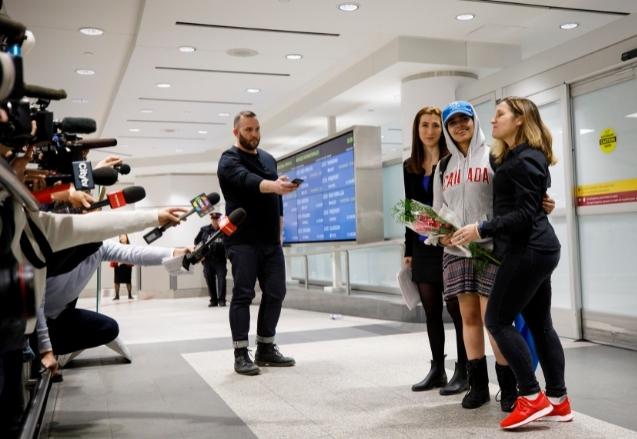

Finally the taxi came. I asked the driver to take me to the airport and then connected to the internet through his phone’s hotspot. Through messaging apps, I texted my friends. I didn’t feel scared at all. I even did a video chat from the taxi and kept saying, “I did it, I did it.” And I took a photo of myself in the taxi and sent it to my friends. The drivers in Kuwait, just like in Saudi, are mostly from India or Afghanistan, so they speak Urdu or Dari. I knew the driver couldn’t understand Arabic, so I was free to talk to my girlfriends. I felt victorious.




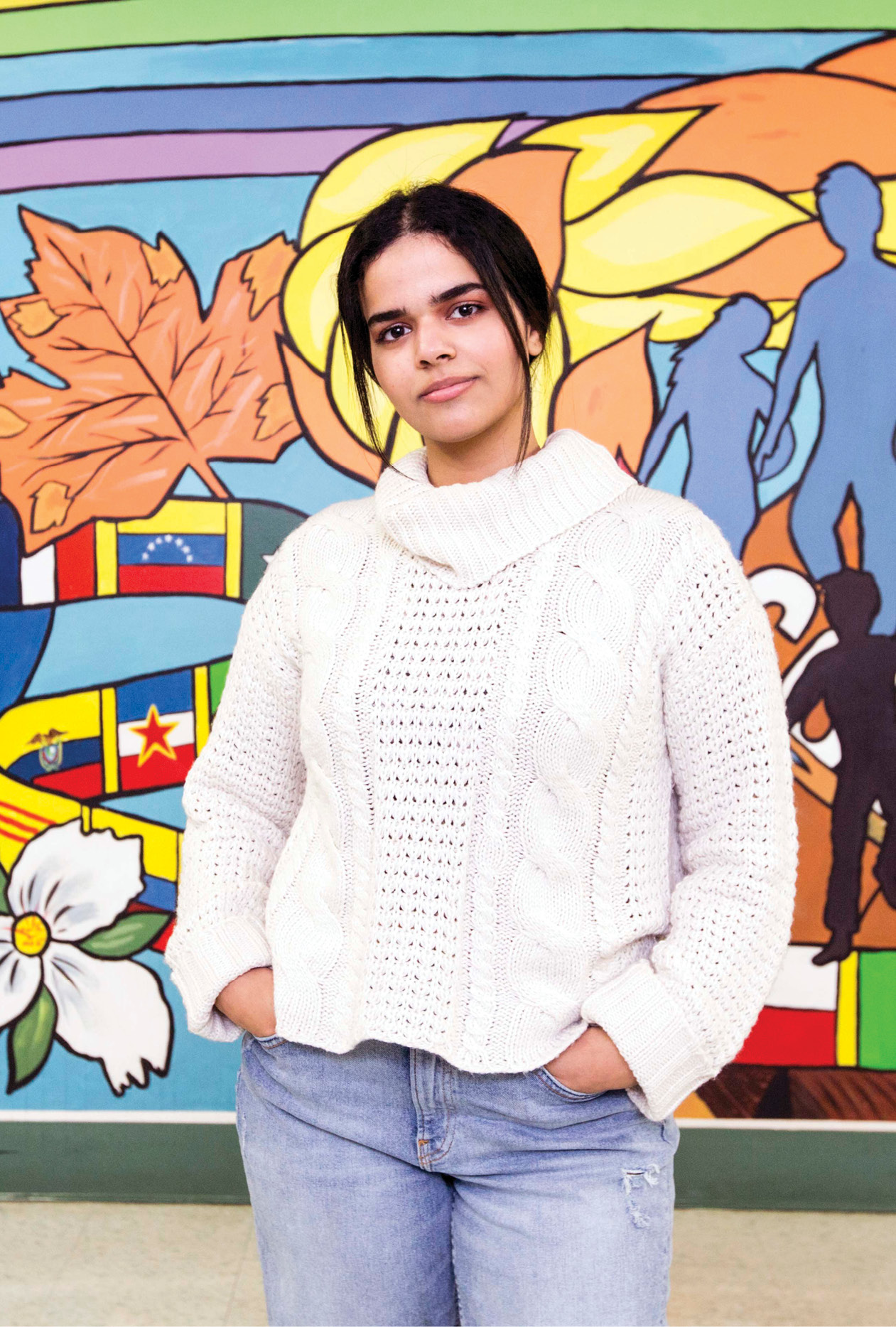


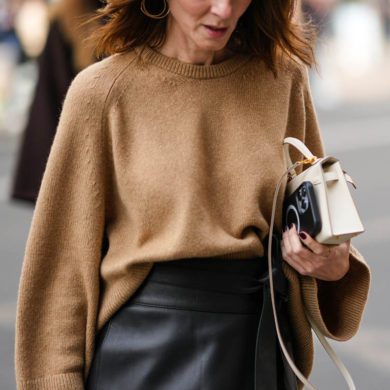
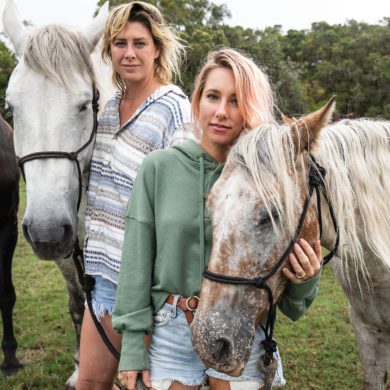
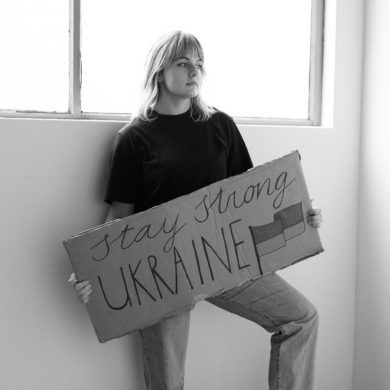
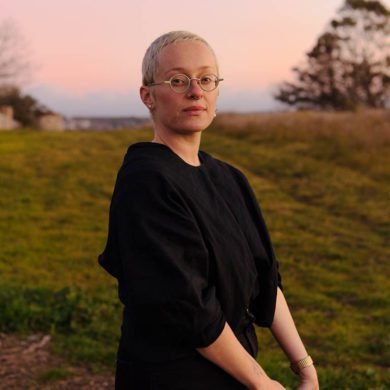


No Comments